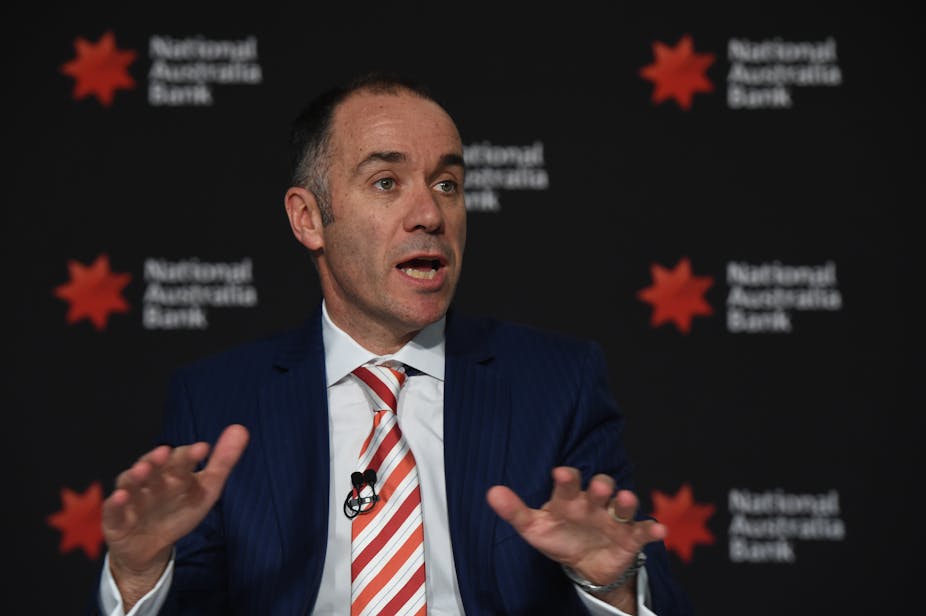The NAB investment advice scandal is just the latest to hit the press in Australia, after Storm and LIBOR.
This particular scandal will probably follow the others in that there will be: a fuss in a Senate Committee, embarrassing details emerging in the press, copious mea culpas from management, assignment of blame (typically on a former CEO) and then back to business as usual – until the next one. [Which will probably be the foreign exchange benchmark manipulation scandal].
But why does this keep happening? Surely bankers do not, even though the bonuses keep rolling in, relish another round of bank bashing.
Innovation and technology in banking has given individual investors access to products previously only available to superannuation funds and hedge funds.
Asking the industry to stop coming up with new ideas is not going to work, given they need constant growth in income. Nor is asking bankers to behave nicely - it has failed so far. And wholesale education of punters has had a patchy history - greed often overcomes common sense.
One option is to look at what other jurisdictions are doing. A novel suggestion given Australia survived the global financial crisis (GFC) by good regulation, sound finances, good government, cautious lending etc. But Australia is not unique in facing such financial sector scandals.
In the USA after the GFC, a new regulatory body was formed called the Consumer Financial Protection Bureau (CFPB) with a goal pretty much spelt out in its name. The CFPB has started to flex its muscles, recently hitting GE Capital with fines and restitution costs of some US$225 million for “deceptive credit card practices”. It also issued penalties of some US$35 million to Wells Fargo and JPMorgan Chase for “illegal mortgage kickbacks”.
One of the most innovative actions taken by the CFPB is the creation of a “complaints database” available to everyone with an internet connection. Similar complaints/disputes procedures are available from ASIC and the Financial Ombudsman Service (FOS) in Australia, but data entry is cumbersome and only general summary statistics are provided. The CFPB lets anyone see and analyse the entire database.
This type of action makes everyone sit up and take notice before a problem occurs rather than after.
Not convinced? The Australian Telecommunications Industry Ombudsman (TIO) has had an easy to use complaints procedure for some time. And it works, complaints are falling.
Nor is the CFPB alone. The UK Financial Conduct Authority (FCA) has not (yet) created a central complaints database accessible to the public, but has demanded all banks it supervises significantly upgrade their complaints processes. The FCA also requires complaints statistics to be reported on a regular basis. The FCA then names and shames banks in a semi-annual report. Large institutions such as Lloyds Banking Group are already using improvement in these statistics as inputs to management remuneration. Name and shame works.
The Financial Ombudsman Service in the UK, which has roughly the same mission as the Australian FOS (which coincidentally has done some excellent work in the CBA and Macquarie planning scandals) operates yet another complaints service, which handled a half million complaints in 2014.
The UK FOS produces copious statistics on complaints to banks and insurers including interestingly the “socio-economic background of consumers who complained to the ombudsman”. This last insight is important as it shows, like similar figures from the CFPB, that complaining is most often done by the well-off, and not those who are less financially literate - a clear gap, since misconduct is no respecter of wealth.
The point is not that someone, somewhere has come up with a good idea, but that overseas governments have restructured their regulatory systems and appear to be making headway on some difficult consumer-related issues.
If that takes a Royal Commission in Australia, the banks and their regulators have only themselves to blame for putting their collective heads in the sand for so long.

